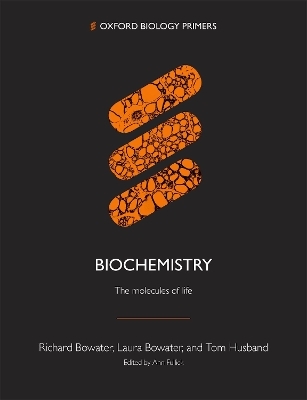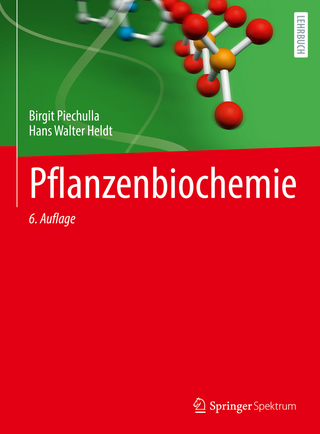
Biochemistry
Oxford University Press (Verlag)
978-0-19-884839-4 (ISBN)
This is a concise, stimulating introduction to the fundamental biomolecules in cells and organisms, and the exciting ways biochemistry could be used to solve global problems, both now and in the future.
Richard Bowater is Professor of Biochemistry and Molecular Biology Education in the School of Biological Sciences at the University of East Anglia where he teaches biochemistry and molecular biology to all levels of university students. Richard has authored many primary publications and reviews that focus on his research interests, and also delivered pedagogical commentaries about teaching biochemical concepts to diverse audiences. He became a Senior Fellow of the Higher Education Academy (SFHEA) in the UK in 2015, and is a member of the Biochemical Society, Microbiology Society and the Royal Society of Chemistry. In collaboration with the Biochemical Society, Richard and other colleagues from UEA developed a MOOC titled "Biochemistry: Molecules of Life", which is targeted at 15-19 year old students and is delivered on the FutureLearn platform. Laura Bowater is Professor of Microbiology Education and Engagement at the University of East Anglia. She began her academic career as a microbiologist at the University of Dundee, graduating with an MSc and a PhD in microbial biochemistry. She continued her scientific research at the John Innes Centre in Norwich, UK. Laura has combined her interest in microbiology and the growing problem of antimicrobial resistance with her passion for public engagement and science communication and is an author of the book Science Communication: a practical guide for scientists (Wiley-Blackwell, 2012), and The Microbes Fight Back: antibiotic resistance (Royal Society of Chemistry, 2016). She currently leads an interdisciplinary research project focused on citizen science that is seeking solutions to the global problem of antibiotic resistance mechanisms (ARM). Laura also enjoys teaching medical sciences to future doctors at the Norwich Medical School. Tom Husband is second in science at Norton Hill School in Somerset. Tom has a background in chemistry and completed his Bachelor's degree at Sheffield University. He has 7 years' experience of teaching chemistry to students aged 11 to 18, during which time he has studied for a Masters in Science Education at the University of Cambridge. His areas of pedagogical interest include metacognition, reflective writing and collaborative reading. He is a regular contributor to various education publications, including the Royal Society of Chemistry's Education in Chemistry, and also the American Chemical Society's ChemMatters. He has also published The Chemistry of Human Nature (Royal Society of Chemistry, 2016), which is concerned with various aspects of biochemistry, including genetics, epigenetics, abiogenesis and metabolism.
1: Carbohydrates: Why life is sweet
2: Lipids and Proteins: the building blocks of a cell
3: Nucleotides and Nucleic Acids: Biology's information stores
4: Metabolism: Transforming energy and biomolecules
5: Maintaining a Metabolic Balance
6: Solving Tomorrow's Problems with Natural Products
7: Solving Tomorrow's Problems: Bioenergy and the environment
| Erscheinungsdatum | 03.01.2020 |
|---|---|
| Reihe/Serie | Oxford Biology Primers |
| Verlagsort | Oxford |
| Sprache | englisch |
| Maße | 188 x 243 mm |
| Gewicht | 390 g |
| Themenwelt | Naturwissenschaften ► Biologie ► Biochemie |
| ISBN-10 | 0-19-884839-0 / 0198848390 |
| ISBN-13 | 978-0-19-884839-4 / 9780198848394 |
| Zustand | Neuware |
| Haben Sie eine Frage zum Produkt? |
aus dem Bereich


